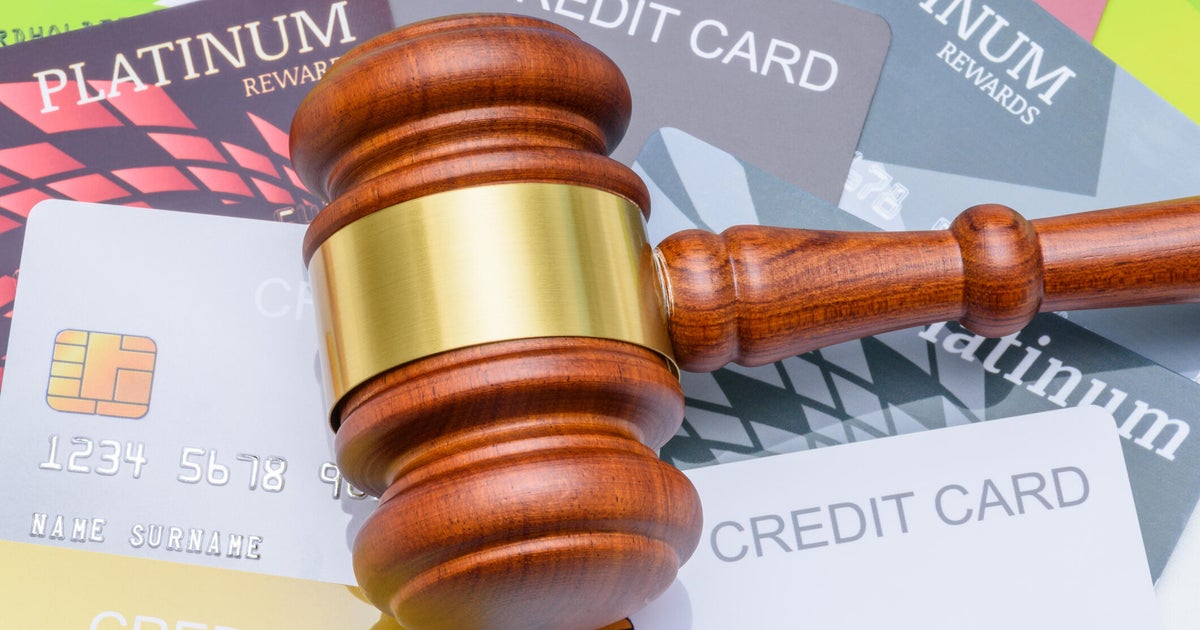In the current economic environment, where Americans owe a record $1.21 trillion in credit card debt and credit card rates are sitting at record highs, many borrowers face collection calls and potential lawsuits over unpaid debt. As more accounts fall into serious delinquency due to inflation and other economic stressors, even more people are at risk.
While debt-related lawsuits are among the most common civil cases in the U.S., they can still have long-lasting effects on your finances. Many people assume a debt lawsuit will only be filed if you owe a substantial balance. That’s not always the case. Debt collectors may file suits over surprisingly small amounts, depending on the type of debt, the agency involved, and state laws.
Understanding when legal action becomes likely and what you can do before it reaches that point is crucial—especially if your debt has already been turned over to collections. So, what is the lowest amount a debt collector is likely to file a lawsuit over? Let’s explore.
### What Is the Lowest Amount a Debt Collector Will Sue For?
There’s no single threshold amount that triggers a debt lawsuit. The decision to file usually depends on three main factors:
#### 1. The Size of the Debt Relative to Collection Costs
Debt collectors weigh potential recovery against the costs of suing you, including court filing fees, attorney costs, and the effort required to collect after winning. For small balances, filing a lawsuit and the related costs often aren’t worth it. However, many collection firms handle large volumes of cases through standardized processes, so pursuing even smaller balances can be profitable.
#### 2. The Type and Age of the Debt
Unsecured debts like credit cards and personal loans are more commonly litigated because they’re easier to prove and collect. Medical debts, on the other hand, are less likely to result in lawsuits, especially if sold to secondary collectors. Additionally, older debts beyond your state’s statute of limitations can’t legally be sued for, though collectors might still contact you or threaten legal action to try and compel payment.
#### 3. State Laws and Local Court Practices
In some states, small claims courts allow lawsuits for amounts as low as a few hundred dollars. For example, a debt collector might sue for a $750 credit card balance in a jurisdiction with minimal filing fees and high default judgment rates. Conversely, in states with higher court costs or stricter documentation rules, pursuing small debts may be less worthwhile.
In short: debt collectors typically start considering lawsuits for amounts around $1,000 to $5,000, but there’s no strict rule. If your debt falls within that range or you’ve ignored collection calls or letters, you could be at risk of being sued.
—
### How to Deal with Overwhelming Debt Before a Lawsuit Is Filed
If you’re behind on payments but haven’t been sued yet, you still have time to act. Taking early steps can help you avoid court, reduce your balance, and protect your credit. Here’s what to consider:
#### Communicate with Your Creditor or Debt Collector
Ignoring calls and letters won’t make the debt disappear; it increases your risk of a lawsuit. Instead, contact the creditor or debt collector to discuss your payment options. Some may accept reduced settlements or waive interest if you can provide a lump-sum payment.
#### Consider a Debt Management Program
Debt management programs, available through credit counseling agencies, allow you to consolidate multiple credit card debts into a single monthly payment while working to lower interest rates. A counselor negotiates with creditors on your behalf, and you pay the agency monthly until your balances are cleared—typically within three to five years.
#### Explore Debt Settlement
If you owe more than $7,500 to $10,000 and can’t keep up with payments, debt settlement could help you resolve your debt for less than you owe. A debt relief company negotiates with creditors to settle balances often for 50% to 70% of the total owed. Keep in mind, debt settlement can temporarily hurt your credit and may have tax implications.
#### Look into a Debt Consolidation Loan
If your credit is still solid, a debt consolidation loan might help combine multiple high-interest debts into one lower-rate loan. This option can make payments more manageable and reduce overall interest costs.
#### Consult with a Professional
If the situation feels overwhelming, speak with a credit counselor or debt relief specialist. They can assess your options based on your income, debt type, and credit profile and help decide whether settlement, management, or even bankruptcy is the best path forward.
—
### The Bottom Line
Debt collectors can—and often do—sue over relatively small amounts, especially if you’ve ignored repeated attempts to collect money owed. While lawsuits over a few hundred dollars aren’t common, balances in the $1,000 to $5,000 range are frequently targeted, depending on the creditor and your state’s rules.
If you’re at risk of being sued, acting quickly can help you avoid the stress and long-term damage of a judgment. Whether it involves negotiating directly with debt collectors, joining a debt management program, or exploring a debt relief solution, don’t wait to act. The earlier you respond, the more control you’ll have and the easier it will be to protect your finances before a lawsuit begins.
https://www.cbsnews.com/news/what-is-the-lowest-amount-a-debt-collector-will-sue-for/

Be First to Comment